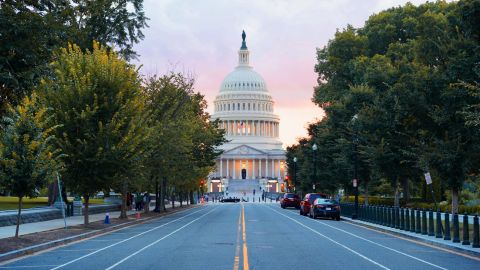Raise the caps one last time
The National Institutes of Health has seen a recent funding boom reminiscent of a period in the late 1990s and early 2000s when the agency’s budget doubled. The NIH budget has increased by $9 billion since fiscal year 2015 (nearly 25 percent), and the American Society for Biochemistry and Molecular Biology, along with other scientific societies, is calling for a continuation of this growth in the coming year’s budget.
Remarkably, the recent period of NIH budget increases has occurred at a time when legislative budget caps limit the federal government’s annual discretionary spending.
In 2011, in response to a ballooning federal debt and deficit, President Barack Obama formed a bipartisan super committee to develop fiscal policies that would restrain federal spending. The effort resulted in adoption of the Budget Control Act of 2011, or BCA, which limited both defense and nondefense discretionary spending for the next decade. The caps were intended to control spending and ensure limits on both Republican and Democratic priorities (defense spending and social safety net programs, respectively).
The defense community criticized these caps as draconian, and the U.S. Congress immediately began talking about eliminating — or raising — the caps on defense spending. In response, thousands of organizations representing constituencies supported by nondefense discretionary, or NDD, spending (investments in science, for example), started a coalition named NDD United. The ASBMB is a leader in NDD United, and I am a national co-chair. NDD United’s operations currently are managed by the ASBMB’s public affairs staff.
For eight years, NDD United successfully has lobbied Congress to raise spending caps on both defense and nondefense priorities. Thanks to the coalition’s Raise the Caps advocacy efforts, Congress has passed bipartisan budget agreements every two years for the past six years that resulted in steadily increasing nondefense discretionary caps.
The last budget agreement raised the caps for fiscal years 2018 and 2019. The caps from the original 2011 law are back for fiscal 2020 and 2021, and without a plan to raise them, continued increases to the NIH budget are at risk. Spending cap levels now in place for fiscal 2020 represent a $55 billion cut to nondefense discretionary spending from fiscal 2019 levels. This nearly 10 percent cut would be devastating for all domestic priorities, including investments at the NIH and National Science Foundation.
The NIH has benefited from the Raise the Caps effort. NDD United’s latest letter to Congress (sent in March) made the case for a discretionary caps increase, highlighting recent investments in the NIH budget. “Previous bipartisan budget deals have provided spending cap relief that has allowed Congress to more adequately fund services essential to Americans nationwide. For example, funding for biomedical research has grown, allowing scientists to conduct research and discover life-saving treatments and cures,” the letter states.
The ASBMB urges Congress to work toward a plan to raise the caps for the final two years of the BCA, allowing for sustained funding in priorities such as biomedical research. This deal would last through fiscal 2021 and end the threat of spending cuts that will be mandatory if the caps are not raised.
Enjoy reading ASBMB Today?
Become a member to receive the print edition four times a year and the digital edition monthly.
Learn moreGet the latest from ASBMB Today
Enter your email address, and we’ll send you a weekly email with recent articles, interviews and more.
Latest in Policy
Policy highlights or most popular articles

Councilors advocate for science on Capitol Hill
ASBMB Councilors meet with their elected officials to advocate for basic scientific research funding and training the next generation of scientists.

Hope for a cure hangs on research
Amid drastic proposed cuts to biomedical research, rare disease families like Hailey Adkisson’s fight for survival and hope. Without funding, science can’t “catch up” to help the patients who need it most.

Supporting science through advocacy and community building
ASBMB calls on scientists to take action as funding cuts and policy shifts threaten the U.S. research enterprise, emphasizing the power of community advocacy and persistence in protecting the future of science.

Seven steps to advocating in your home state
Find out how to schedule, prepare for and conduct a productive district office meeting to communicate the importance of fundamental scientific research funding to your representatives.

ASBMB members call for funding and agency support amidst uncertainty
In 60 meetings on Capitol Hill, scientists urge legislators to reaffirm support for scientific innovation

Embrace your neurodivergence and flourish in college
This guide offers practical advice on setting yourself up for success — learn how to leverage campus resources, work with professors and embrace your strengths.

